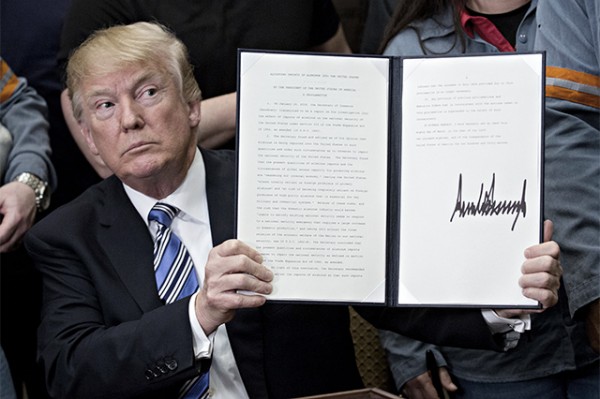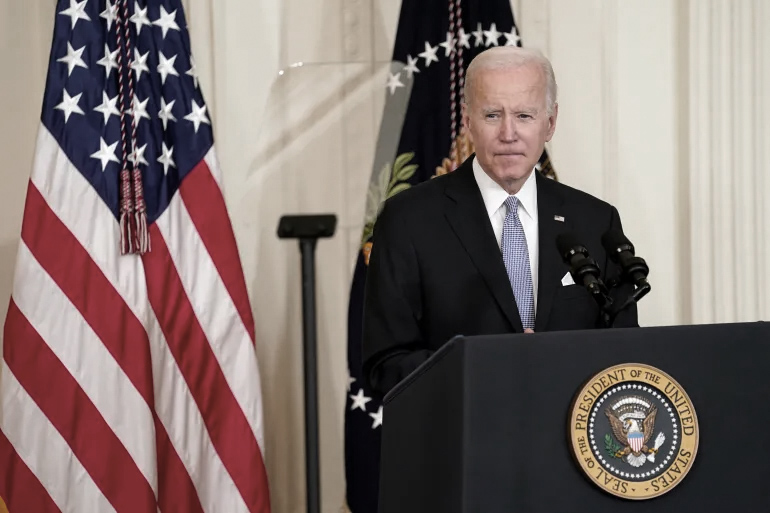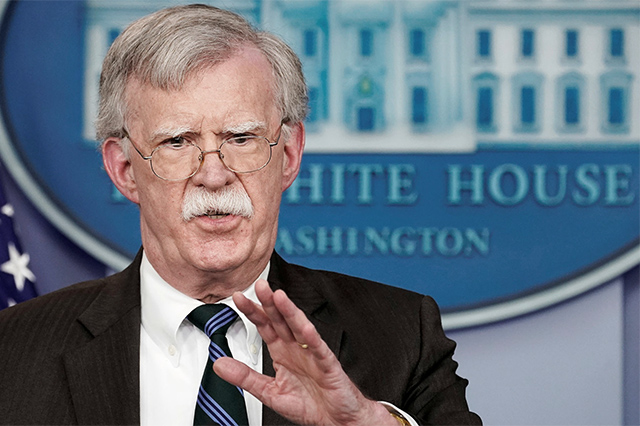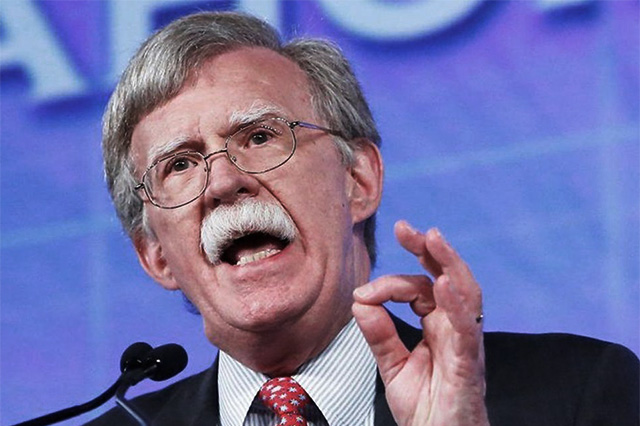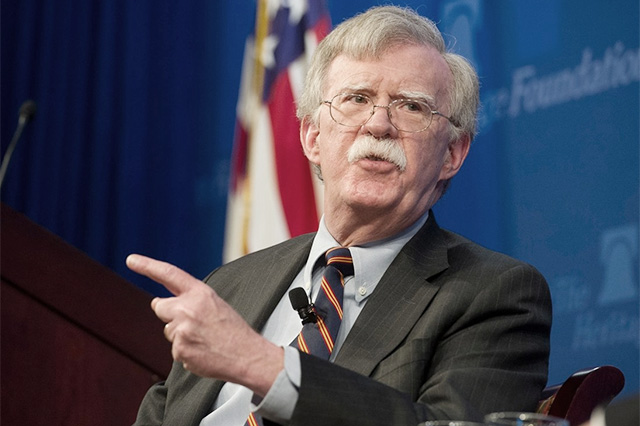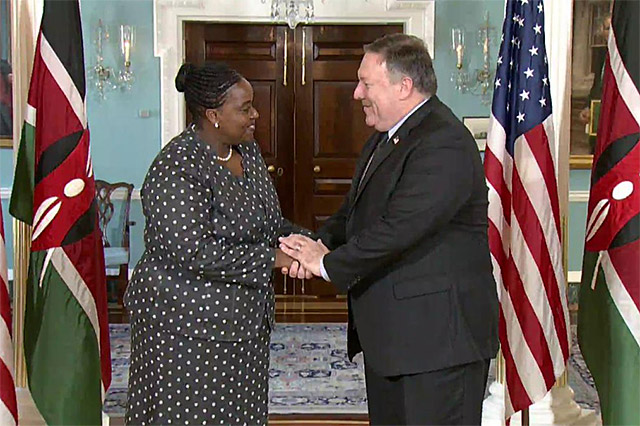Presidential proclamation on adjusting imports of steel into the United States
1. On January 11, 2018, the Secretary of Commerce (Secretary) transmitted to me a report on his investigation into the effect of imports of steel mill articles (steel articles) on the national security of the United States under section 232 of the Trade Expansion Act of 1962, as amended (19 U.S.C. 1862).
2. The Secretary found and advised me of his opinion that steel articles are being imported into the United States in such quantities and under such circumstances as to threaten to impair the national security of the United States.
The Secretary found that the present quantities of steel articles imports and the circumstances of global excess capacity for producing steel are “weakening our internal economy,” resulting in the persistent threat of further closures of domestic steel production facilities and the “shrinking [of our] ability to meet national security production requirements in a national emergency.”
Because of these risks and the risk that the United States may be unable to “meet [steel] demands for national defense and critical industries in a national emergency,” and taking into account the close relation of the economic welfare of the Nation to our national security, see 19 U.S.C. 1862(d), the Secretary concluded that the present quantities and circumstances of steel articles imports threaten to impair the national security as defined in section 232 of the Trade Expansion Act of 1962, as amended.
3. In reaching this conclusion, the Secretary considered the previous U.S. Government measures and actions on steel articles imports and excess capacity, including actions taken under Presidents Reagan, George H.W. Bush, Clinton, and George W. Bush. The Secretary also considered the Department of Commerce’s narrower investigation of iron ore and semi-finished steel imports in 2001, and found the recommendations in that report to be outdated given the dramatic changes in the steel industry since 2001, including the increased level of global excess capacity, the increased level of imports, the reduction in basic oxygen furnace facilities, the number of idled facilities despite increased demand for steel in critical industries, and the potential impact of further plant closures on capacity needed in a national emergency.
4. In light of this conclusion, the Secretary recommended actions to adjust the imports of steel articles so that such imports will not threaten to impair the national security. Among those recommendations was a global tariff of 24 percent on imports of steel articles in order to reduce imports to a level that the Secretary assessed would enable domestic steel producers to use approximately 80 percent of existing domestic production capacity and thereby achieve long-term economic viability through increased production. The Secretary has also recommended that I authorize him, in response to specific requests from affected domestic parties, to exclude from any adopted import restrictions those steel articles for which the Secretary determines there is a lack of sufficient U.S. production capacity of comparable products, or to exclude steel articles from such restrictions for specific national security-based considerations.
5. I concur in the Secretary’s finding that steel articles are being imported into the United States in such quantities and under such circumstances as to threaten to impair the national security of the United States, and I have considered his recommendations.
6. Section 232 of the Trade Expansion Act of 1962, as amended, authorizes the President to adjust the imports of an article and its derivatives that are being imported into the United States in such quantities or under such circumstances as to threaten to impair the national security.
7. Section 604 of the Trade Act of 1974, as amended (19 U.S.C. 2483), authorizes the President to embody in the Harmonized Tariff Schedule of the United States (HTSUS) the substance of acts affecting import treatment, and actions thereunder, including the removal, modification, continuance, or imposition of any rate of duty or other import restriction.
8. In the exercise of these authorities, I have decided to adjust the imports of steel articles by imposing a 25 percent ad valorem tariff on steel articles, as defined below, imported from all countries except Canada and Mexico. In my judgment, this tariff is necessary and appropriate in light of the many factors I have considered, including the Secretary’s report, updated import and production numbers for 2017, the failure of countries to agree on measures to reduce global excess capacity, the continued high level of imports since the beginning of the year, and special circumstances that exist with respect to Canada and Mexico. This relief will help our domestic steel industry to revive idled facilities, open closed mills, preserve necessary skills by hiring new steel workers, and maintain or increase production, which will reduce our Nation’s need to rely on foreign producers for steel and ensure that domestic producers can continue to supply all the steel necessary for critical industries and national defense. Under current circumstances, this tariff is necessary and appropriate to address the threat that imports of steel articles pose to the national security.
9. In adopting this tariff, I recognize that our Nation has important security relationships with some countries whose exports of steel articles to the United States weaken our internal economy and thereby threaten to impair the national security. I also recognize our shared concern about global excess capacity, a circumstance that is contributing to the threatened impairment of the national security. Any country with which we have a security relationship is welcome to discuss with the United States alternative ways to address the threatened impairment of the national security caused by imports from that country. Should the United States and any such country arrive at a satisfactory alternative means to address the threat to the national security such that I determine that imports from that country no longer threaten to impair the national security, I may remove or modify the restriction on steel articles imports from that country and, if necessary, make any corresponding adjustments to the tariff as it applies to other countries as our national security interests require.
10. I conclude that Canada and Mexico present a special case. Given our shared commitment to supporting each other in addressing national security concerns, our shared commitment to addressing global excess capacity for producing steel, the physical proximity of our respective industrial bases, the robust economic integration between our countries, the export of steel articles produced in the United States to Canada and Mexico, and the close relation of the economic welfare of the United States to our national security, see 19 U.S.C. 1862(d), I have determined that the necessary and appropriate means to address the threat to the national security posed by imports of steel articles from Canada and Mexico is to continue ongoing discussions with these countries and to exempt steel articles imports from these countries from the tariff, at least at this time. I expect that Canada and Mexico will take action to prevent transshipment of steel articles through Canada and Mexico to the United States.
11. In the meantime, the tariff imposed by this proclamation is an important first step in ensuring the economic viability of our domestic steel industry. Without this tariff and satisfactory outcomes in ongoing negotiations with Canada and Mexico, the industry will continue to decline, leaving the United States at risk of becoming reliant on foreign producers of steel to meet our national security needs — a situation that is fundamentally inconsistent with the safety and security of the American people. It is my judgment that the tariff imposed by this proclamation is necessary and appropriate to adjust imports of steel articles so that such imports will not threaten to impair the national security as defined in section 232 of the Trade Expansion Act of 1962, as amended.
Now, Therefore, I, Donald J. Trump, President of the United States of America, by the authority vested in me by the Constitution and the laws of the United States of America, including section 301 of title 3, United States Code, section 604 of the Trade Act of 1974, as amended, and section 232 of the Trade Expansion Act of 1962, as amended, do hereby proclaim as follows:
(1) For the purposes of this proclamation, “steel articles” are defined at the Harmonized Tariff Schedule (HTS) 6 digit level as: 7206.10 through 7216.50, 7216.99 through 7301.10, 7302.10, 7302.40 through 7302.90, and 7304.10 through 7306.90, including any subsequent revisions to these HTS classifications.
(2) In order to establish increases in the duty rate on imports of steel articles, subchapter III of chapter 99 of the HTSUS is modified as provided in the Annex to this proclamation. Except as otherwise provided in this proclamation, or in notices published pursuant to clause 3 of this proclamation, all steel articles imports specified in the Annex shall be subject to an additional 25 percent ad valorem rate of duty with respect to goods entered, or withdrawn from warehouse for consumption, on or after 12:01 a.m. eastern daylight time on March 23, 2018. This rate of duty, which is in addition to any other duties, fees, exactions, and charges applicable to such imported steel articles, shall apply to imports of steel articles from all countries except Canada and Mexico.
(3) The Secretary, in consultation with the Secretary of State, the Secretary of the Treasury, the Secretary of Defense, the United States Trade Representative (USTR), the Assistant to the President for National Security Affairs, the Assistant to the President for Economic Policy, and such other senior Executive Branch officials as the Secretary deems appropriate, is hereby authorized to provide relief from the additional duties set forth in clause 2 of this proclamation for any steel article determined not to be produced in the United States in a sufficient and reasonably available amount or of a satisfactory quality and is also authorized to provide such relief based upon specific national security considerations. Such relief shall be provided for a steel article only after a request for exclusion is made by a directly affected party located in the United States. If the Secretary determines that a particular steel article should be excluded, the Secretary shall, upon publishing a notice of such determination in the Federal Register, notify Customs and Border Protection (CBP) of the Department of Homeland Security concerning such article so that it will be excluded from the duties described in clause 2 of this proclamation. The Secretary shall consult with CBP to determine whether the HTSUS provisions created by the Annex to this proclamation should be modified in order to ensure the proper administration of such exclusion, and, if so, shall make such modification to the HTSUS through a notice in the Federal Register.
(4) Within 10 days after the date of this proclamation, the Secretary shall issue procedures for the requests for exclusion described in clause 3 of this proclamation. The issuance of such procedures is exempt from Executive Order 13771 of January 30, 2017 (Reducing Regulation and Controlling Regulatory Costs).
(5)
(a) The modifications to the HTSUS made by the Annex to this proclamation shall be effective with respect to goods entered, or withdrawn from warehouse for consumption, on or after 12:01 a.m. eastern daylight time on March 23, 2018, and shall continue in effect, unless such actions are expressly reduced, modified, or terminated.
(b) The Secretary shall continue to monitor imports of steel articles and shall, from time to time, in consultation with the Secretary of State, the Secretary of the Treasury, the Secretary of Defense, the USTR, the Assistant to the President for National Security Affairs, the Assistant to the President for Economic Policy, the Director of the Office of Management and Budget, and such other senior Executive Branch officials as the Secretary deems appropriate, review the status of such imports with respect to the national security. The Secretary shall inform the President of any circumstances that in the Secretary’s opinion might indicate the need for further action by the President under section 232 of the Trade Expansion Act of 1962, as amended. The Secretary shall also inform the President of any circumstance that in the Secretary’s opinion might indicate that the increase in duty rate provided for in this proclamation is no longer necessary.
(6) Any provision of previous proclamations and Executive Orders that is inconsistent with the actions taken in this proclamation is superseded to the extent of such inconsistency.
IN WITNESS WHEREOF, I have hereunto set my hand this eighth day of March, in the year of our Lord two thousand eighteen, and of the Independence of the United States of America the two hundred and forty-second.
DONALD J. TRUMP
See infographic prepared by TRALAC 30 April 2018.




